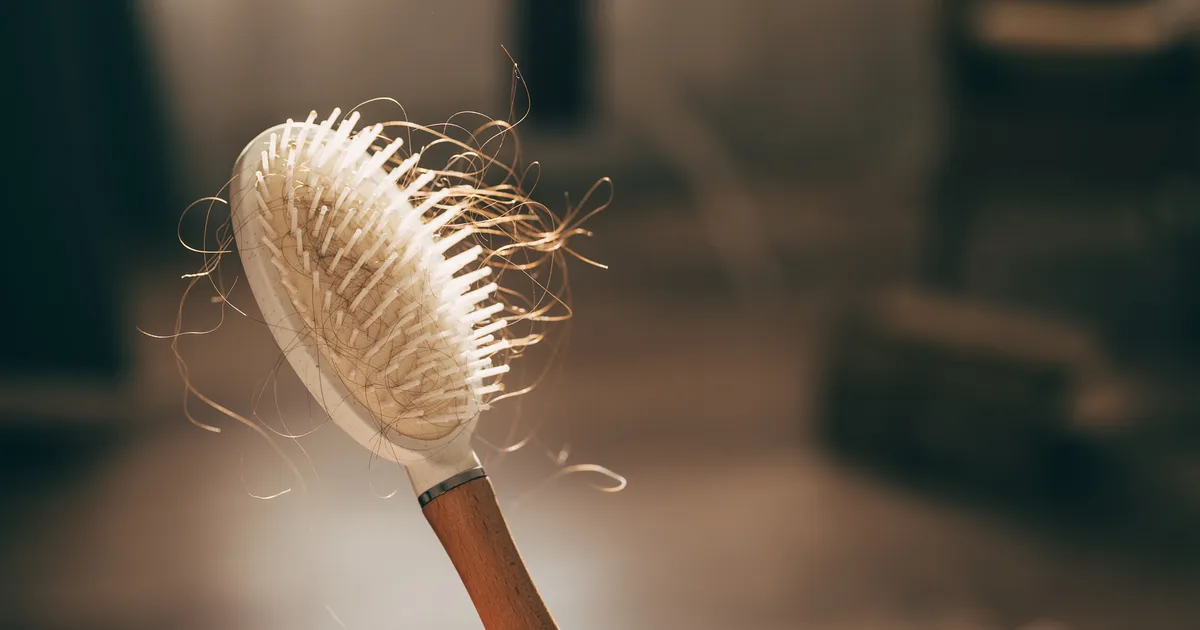Copyright HuffPost

If you’re actually suffering from hair loss, that’s one thing — but lately the beauty market has been saturated with products that claim to enhance the growth and volume of hair that is otherwise healthy, but maybe just a little thinner than you’d like. If your FYP is cluttered with hair-building vitamins, scalp serums and other products that swear they’ll thicken and grow your tresses faster, you’re probably right to be at least a little bit skeptical. We talked to experts to find out whether any of these products actually work. Advertisement Why your hair might not be as thick as you want it There can be all sorts of reasons that your hair is not as thick as you’d like it to be. “Our hair condition can be a reflection of our general health,” said clinical trichologist Kate Holden. She pointed to factors including genetics, hormonal changes, nutritional deficiencies, illness, medications or stress as reasons for thinning and even shedding hair. Stress, did you say? Yup. “Stress can have a huge impact on the hair, both because of physical stressors like illness and weight loss, as well as emotional stressors,” Holden said. And there’s even more: “Harsh styling, tight hairstyles and chemical treatments may weaken the hair shaft over time and make the hair appear to be thinner,” she added. Thickening products: How they work There are some products that attempt to make hair look or feel thicker by physically coating and plumping the hair shaft for a fuller look. Advertisement These products — such as volumizing shampoos, thickening sprays and mousses — work instantly by coating each strand, swelling the cuticle slightly and adding volume with styling polymers. There are also products that contain hair fibers and some that work as concealers, clinging to existing hair to provide instant volume. But remember that these are temporary remedies that last only as long as your next shampoo. Thickening products include L’Oréal EverStrong Thickening Shampoo and Paul Mitchell tea tree lemon sage thickening shampoo or specialized applications like Bumble and Bumble thickening spray and Living Proof’s full thickening blow-dry cream. Fiber-coating options include Toppik hair building fibers and Caboki hair-building fiber. Dermatologist Dr. Efe Kakpovbia said her top picks are products from Olaplex and Aphogee. “They’re great for improving hair strength,” she said. “They contain proteins like keratin and peptides, which help rebuild the hair’s structure by forming disulfide bonds that make strands stronger and less prone to breakage.” She also recommended the Head & Shoulders Royal Oils collection. “It works particularly well for individuals with tight curl patterns and dry hair,” she said. Advertisement Growth products: How they work If a mere coating isn’t permanent enough for you, you can try treatments that aim to promote healthier growth or reduce shedding. Topical serums and scalp treatments include brands like Chāmpo’s growth serum and Vegamour’s Gro hair serum. It’s important to note that serums, even hair-growth ones, are classified as cosmetics, not drugs. That means their efficacy claims don’t have to be tested rigorously, and often are not. Independent clinical trials are often small, short-term or company-funded. Substantive research isn’t there, at least yet, to back up claims of hair growth from cosmetic serums. For example, Chāmpo’s Pitta Growth Serum claims that in independent trials in 2022, 90% of users experienced reduced hair loss. But they offer no citations for a published paper, journal article, independent consumer testing or clinical trials to back up that claim. These are brand-reported results, so they should be treated as marketing data rather than independently verified evidence. Advertisement A 2025 study, “Topical Alternatives for Hair Loss: Beyond the Conventional,” published in the International Journal of Trichology, reviewed clinical evidence available on ingredients including Redensyl, Procapil, Capixyl, Baicapil, AnaGain, onion juice, coffee extract, saw palmetto extract, pumpkin seed oil (PSO) and rosemary oil. However, there were issues with the data, as the study concluded with methodological flaws such as a limited sample size, a lack of a representative sample, inadequate comparison with standard therapies, qualitative over quantitative measures of hair regrowth and conflicts of interest in the form of sponsorship by pharmaceutical companies. The study did not identify any of the researched ingredients as a “magic bullet” type of alternative ingredient for hair growth. It suggested that topical treatments may serve as add-on therapies or alternatives for patients who don’t tolerate standard therapies, and concluded by pointing to the need for more rigorous, large-scale studies. Even though they may not work as well as they claim, most of these cosmetic serums are unlikely to do any damage to your hair or scalp. You may experience redness or itching, and some of the natural ingredients, such as rosemary, peppermint, or saw palmetto, could cause allergic reactions in some individuals. But there’s still no proven, science-based evidence that any of these are highly effective at growing hair. Advertisement Vitamins: How they work There are also several nutritional supplements and vitamins available on the market, such as Nutrafol andViviscal, which target the internal causes of hair weakness or breakage. Currently, there’s no firm clinical evidence to demonstrate that these treatments are effective, although some small studies, often funded by companies, have shown modest improvements. A 2023 study found some potential benefits for supplements, but, like the research on growth serums, this study also noted limitations in design, population and standardization of the research. Holden said that before you buy any of these often-pricey supplements, you’ll want to start with an understanding of what your body really needs. “If you have your blood work done and everything is within healthy ranges and you have a healthy diet, then there’s no need to take a supplement,” she said. “But supplements can be helpful if there is an identified deficiency.” Advertisement “Many individuals have found hair loss vitamins and supplements are beneficial, as they can increase hair and scalp health,” said cosmetic dermatologist Dr. Michele Green. She did caution that they’re definitely not going to help everyone, especially if your situation is more severe. “Individuals undergoing hair loss due to genetics, hormonal imbalances or stress may not find vitamins to be effective, and they may need to turn to topical or oral prescription medications for better results.” Another concern about these vitamins: “Patients often look for supplements containing biotin, but I advise caution with oral biotin supplements,” Kakpovbia said. “They can interfere with laboratory testing for thyroid and heart conditions, specifically troponin levels.” Is it time for minoxidil? While some products might help with hair’s appearance, you might be ready to try something stronger. The only over-the-counter topical medication with strong clinical research backing is minoxidil, which has been shown to increase blood flow to the scalp and increase the caliber of hair follicles. “Over-the-counter topical minoxidil has been proven to promote hair growth,” Green said. Advertisement It’s available in 2% and 5% solutions, and studies have shown that the 5% version works better, although it may cause more scalp irritation or temporary shedding. Green said that a dermatologist can prescribe compounded versions, which contain higher concentrations of minoxidil (up to 10%) or may include added ingredients. Many dermatologists are now prescribing low-dose oral minoxidil, which can work better for those who don’t respond well to topical treatments. YourSupportMakes The Story Your SupportFuelsOur Mission Your SupportFuelsOur Mission Join Those Who Make It Possible HuffPost stands apart because we report for the people, not the powerful. Our journalism is fearless, inclusive, and unfiltered. Join the membership program and help strengthen news that puts people first. We remain committed to providing you with the unflinching, fact-based journalism everyone deserves. Thank you again for your support along the way. We’re truly grateful for readers like you! Your initial support helped get us here and bolstered our newsroom, which kept us strong during uncertain times. Now as we continue, we need your help more than ever. We hope you will join us once again. We remain committed to providing you with the unflinching, fact-based journalism everyone deserves. Thank you again for your support along the way. We’re truly grateful for readers like you! Your initial support helped get us here and bolstered our newsroom, which kept us strong during uncertain times. Now as we continue, we need your help more than ever. We hope you will join us once again. Support HuffPost Already a member? Log in to hide these messages. Know when to see a doctor “If you notice sudden or patchy hair loss, shedding lasting longer than six months or scalp irritation, it’s worth seeing a trichologist or dermatologist,” Holden said. “You should have a full review of your medical history and hair care routine, and a thorough examination to determine underlying causes and the best treatment options.” In addition to topical or oral minoxidil, your dermatologist may recommend a prescription that includes finasteride or spironolactone if hair loss is caused by hormonal factors. You might also consider platelet-rich plasma therapy or low-level laser treatments that happen in the office. Advertisement Whatever you’re doing, though, you’ll need to be patient. Just like everyone who’s had to wait for bad break-up bangs to grow out, you’ll find that hair change is not speedy, so don’t expect instant results. “It typically takes at least three to six months to see any meaningful change, since hair growth cycles are slow,” Holden said. “Consistency is key.”



